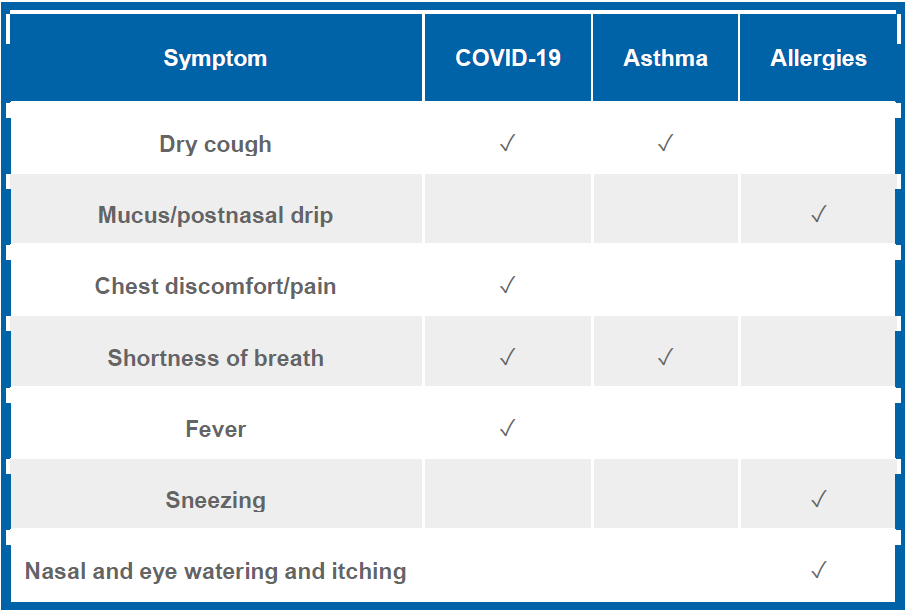As COVID-19 continues to spread throughout the United States and the world, we are hearing from our patients – those with nasal allergy and especially those suffering from asthma. They are worried that having asthma means that they are at increased risk of developing symptoms from COVID-19 if they are exposed. They also wonder if their symptoms will be more dangerous if they have the virus. In addition, a recent announcement regarding a shortage of albuterol has increased anxiety throughout the country.
It is important if you have been diagnosed with COVID-19 or suspect you may have COVID-19 and are using an albuterol nebulized treatments at home, that you know the virus may persist in droplets in the air for 1-2 hours. Therefore, you should administer nebulized albuterol in a location that minimizes exposure to members of your household who aren’t infected. Choose a location for your treatment where the air is not recirculated into the home – places like a porch or patio, or in a garage – areas where surfaces can be cleaned more easily or may not need cleaning.
The U.S. Centers for Disease Control and Prevention has listed asthma as one of the chronic illnesses that may increase the chance of a severe case of COVID-19. So, what do you need to know if you or a family member suffers from asthma?
Respiratory viruses are the most common trigger for asthma exacerbations (severe worsening typically requiring oral steroids to relieve symptoms).
• Not all viruses affect asthma patients equally. Some viruses such as influenza and rhinovirus are more likely to trigger asthma flares than others.
• Right now, we don’t know if COVID-19 is one of those viruses that tend to trigger asthma exacerbation.
• There is no clear evidence that patients with asthma are at any higher risk of contracting COVID-19.
• Asthma is an “underlying medical condition” that may be associated with a more severe disease if you are infected with COVID-19.
• There is no evidence that asthma medications used to prevent symptoms (inhaled steroids, oral steroids, montelukast, biologics), etc. increase your risk of contracting COVID-19.
The Asthma and Allergy Center recommends:
• Continuing or resuming your asthma routine that helps you control your symptoms.
• Using short-acting rescue medications as needed for symptoms.
• Following your Asthma Action Plan if you have one.
• Following CDC guidelines regarding infection control, hygiene, social distancing, etc.
• If you have an upcoming appointment at our office, please call to confirm. We are starting to use telemedicine for return appointments.
• Contact us if you have questions about your medications or if your symptoms seem to be worsening or not under control.
Links
Important information about COVID-19 for those with asthma (Posted 3/12/2020)
A message to asthma sufferers about a shortage of albuterol metered-dose inhalers (Updated 3/23/2020)
Asthma-specific information and recommendations from the CDC (Updated 3/17/2020)
COVID-19 resources from the American College of Allergy, Asthma, and Immunology
How to tell the difference between COVID-19, asthma and nasal allergy

